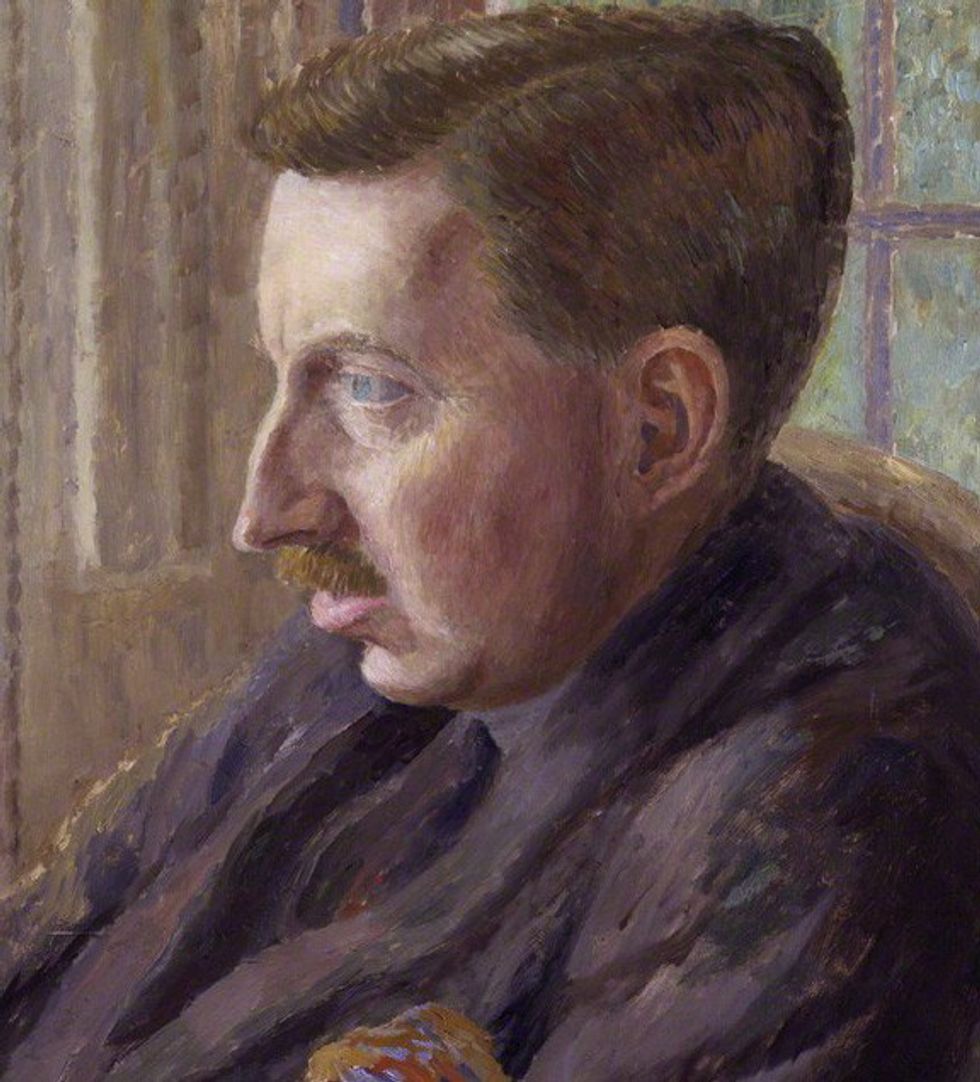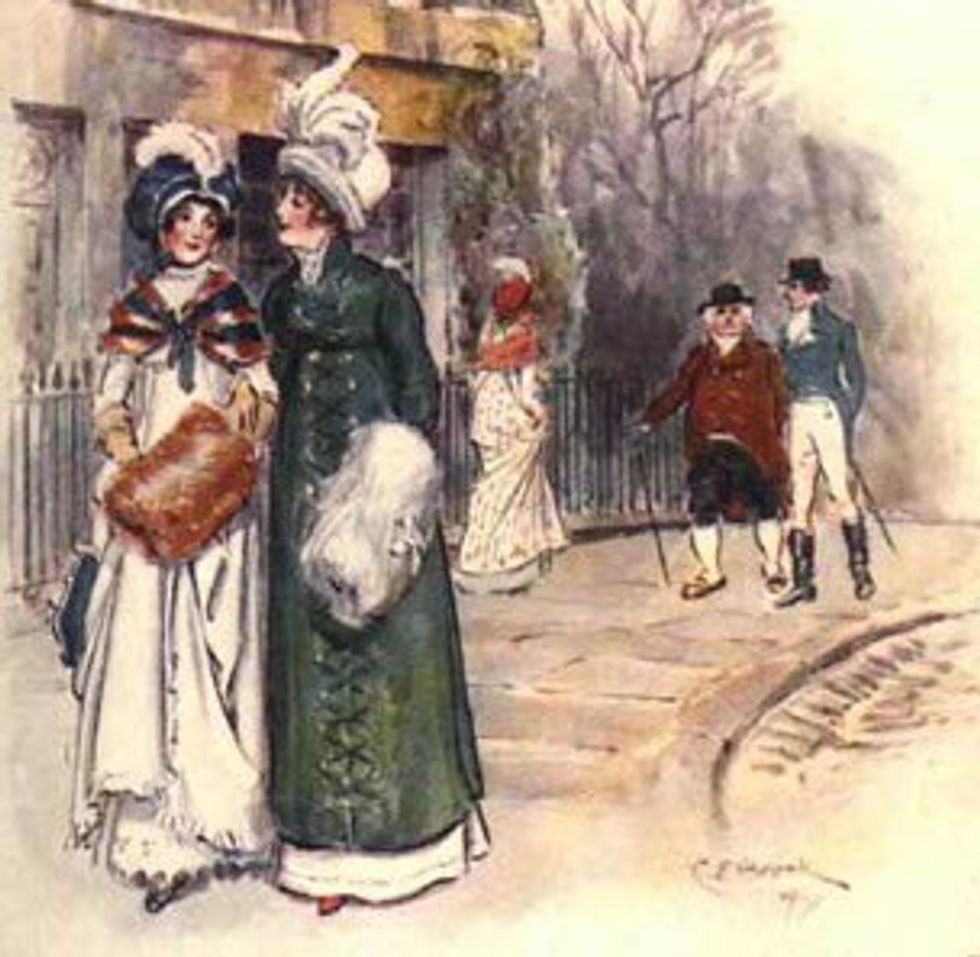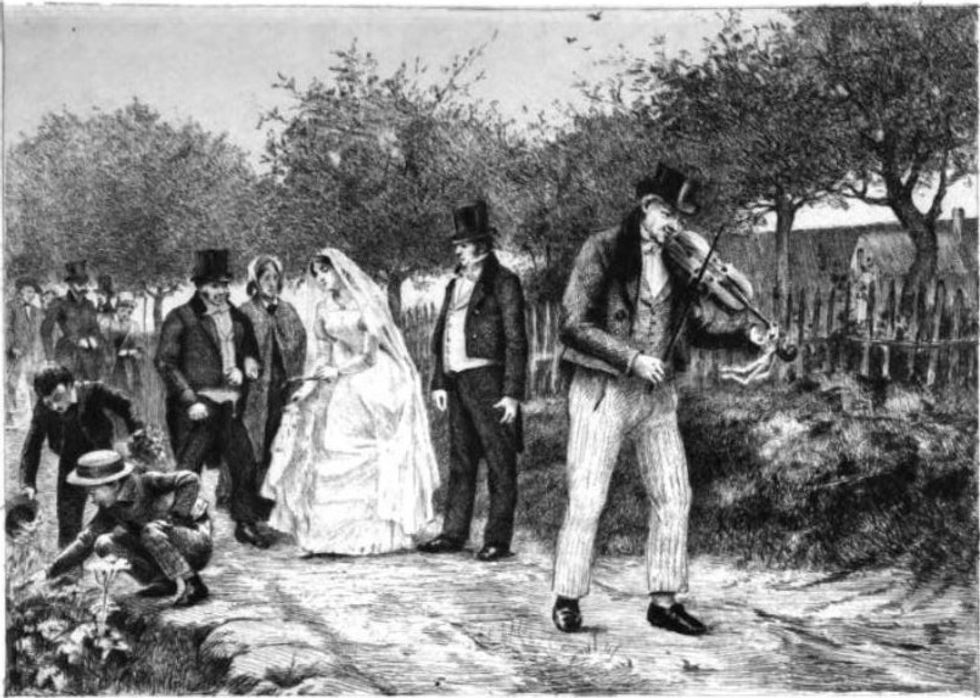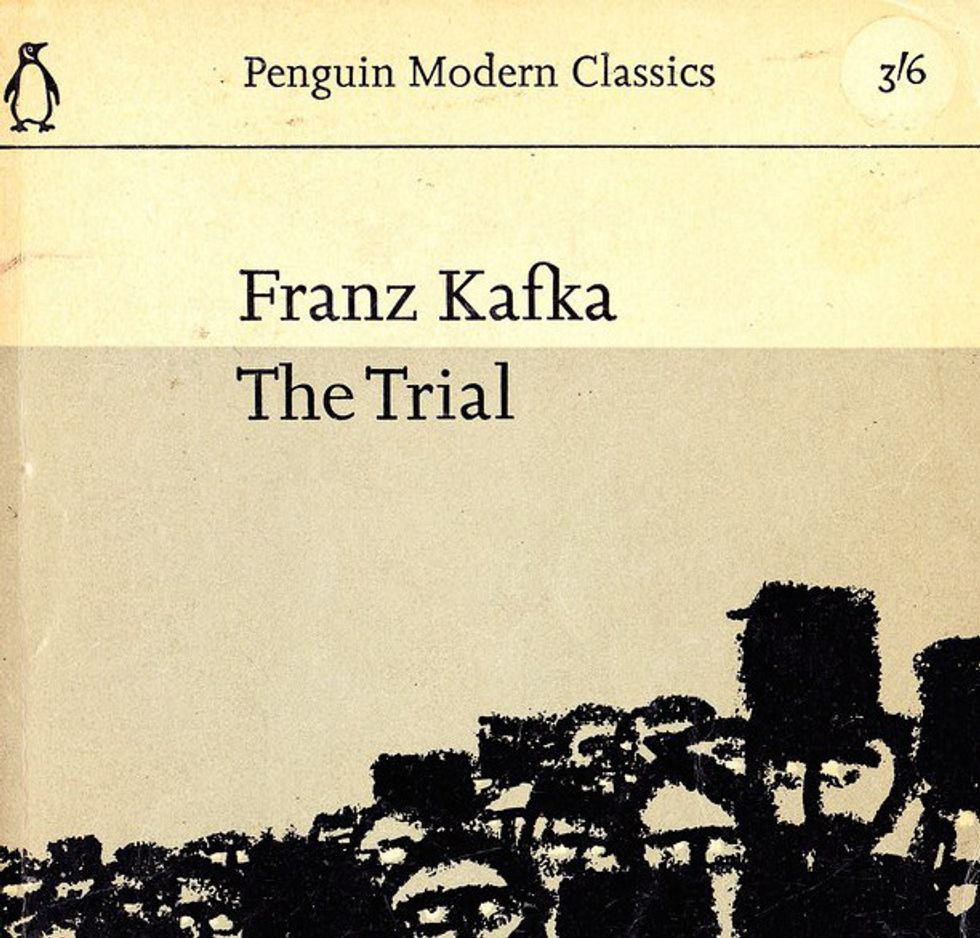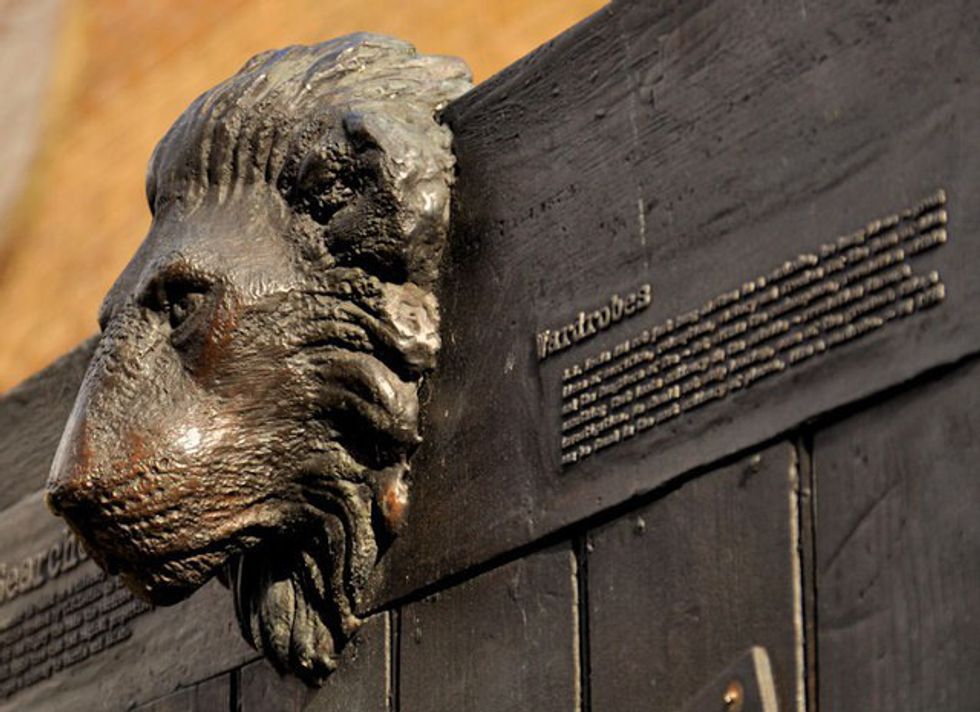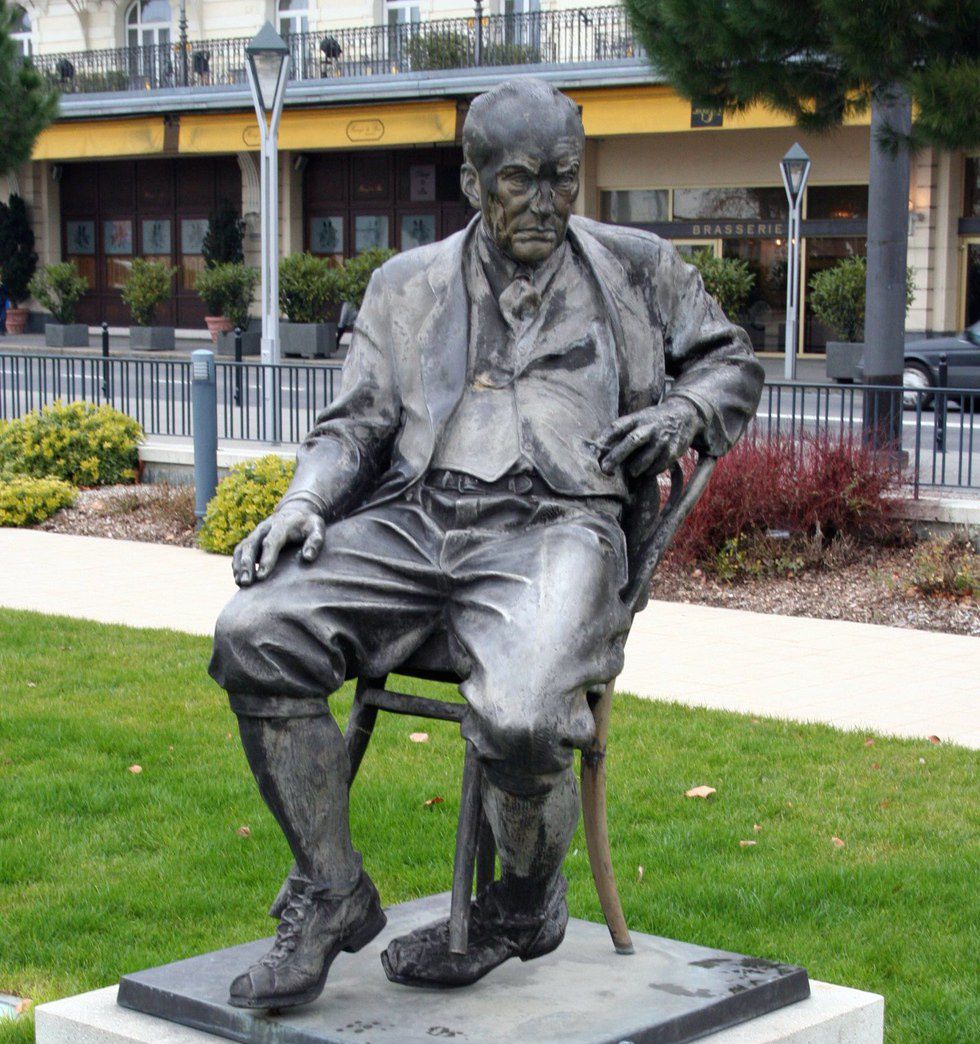We all know the canon: the books we've had to read for class in high school and college, possibly multiple times for different teachers, and let's be honest, we probably didn't finish a lot of them.
Being made to read a book tends to suck all of the fun right out of it, and make reading the classics a chore rather than a pleasure. But rather than going back to the books everyone has read, here are some classics that are often left unmentioned in the classroom:
1. A Passage to India, E.M. Forster
(Photo: Portrait of Forster by Carrington)
This novel, published in 1924, is a story about British Imperial India, and the consequences of one woman's accusations. It explores a lot of very important political themes, and gives readers a glimpse into the lives of both the colonizers, and the people who are colonized. Forster's prose is incredibly beautiful, and you should read this for the descriptions of the landscape, if nothing else.
Forster's most famous work is Howard's End, but this piece gets you out of English country houses, and into a jarring tale centered around the persecution of a man named Aziz.
2. Northanger Abbey, Jane Austen
Northanger Abbey was the first novel Jane Austen wrote, but the last to be published. The protagonist is Catherine Moreland, a young woman of a modest background who goes with friends of her parents to stay in Bath for "the season" - aka, to find a husband. When in Bath, she becomes friends with a young woman who falls in love with her brother, and pushes Catherine towards a match with her own brother. But Catherine is enamored with Frederick Tilney, a handsome young man with a tyrannical father.
This is the gothic novel at it's finest, while still poking fun at the genre, and being endlessly witty and entertaining. I love Pride and Prejudice (and Mr. Darcy), but this novel has a special place in my heart.
3. Madame Bovary, Gustave Flaubert
Originally published in France in 1857, Flaubert's Madame Bovary is extremely thought-provoking, and a sad portrait of a woman's life in the mid-1800's. When young Emma marries Charles Bovary, a middle-class doctor, she believes she will find happiness and an escape from her provincial life. But what she finds is that the life of a country doctor's wife does not suit her either, and she seeks happiness in love affairs, and material goods that she can't afford (19th century shopaholic).
It's also dramatic, sexy, and full of intrigue, and if you love a good costume drama, you'll love this novel.
4. The Trial, Franz Kafka
Originally published in German in 1925, Kafka's The Trial is the story of a man who is prosecuted for a crime, and made to go through an endless bureaucratic process to find out what his crime even was. He never finds out what he did to break the law, and neither does the reader. Though a complete hyperbole, it still paints a picture of the insanity of bureaucracy, and makes us wonder what we would do if one day, two anonymous men showed up at our door, and said we'd committed a crime. The main character, Josef K., fights until the end, but to no avail.
This novel will really make you think about the world differently, and is a must-read for anyone interested in modernist literature.
5. The Horse and his Boy, C.S. Lewis
When most readers think of The Chronicles of Narnia, they think of The Lion, the Witch, and the Wardrobe, but volume 3 of the series, The Horse and his Boy, is my personal favorite. During the reign of the Pevensie siblings as Kings and Queens of Narnia, two native children from a neighboring land escape from their home with two talking horses. They learn of an impending threat to Narnia, and go on an adventure to warn the king.
This is the only book of the series that is entirely set in the world of Narnia, and where natives of the world are the main characters. This novel follows two children from very different social classes, Shasta and Aravis, as they run away from their homes for very different reasons.
Yes, I know, it's a children's book. But it's a very intelligent and highly entertaining children's book.
6. Ada, or Ardor, Vladimir Nabokov
(Photo: Nabokov statue in Montreaux, Switzerland)
Nabokov's most notorious novel is Lolita (1955), but Ada, or Ardor: A family Chronicle (1969), is just that: the story of a family. The novel is from the point of view of Van Veen, who is telling the story in retrospect, when he is in his nineties. It begins when he is a young man of fourteen, and he goes to stay at his family's country estate, Ardis. At Ardis, Van begins to spend time with his cousin Ada, and they begin a lifelong romantic affair.
What's interesting about this novel, is that it's not set in our world. It's set in a world resembling ours in many ways, with the same geography, but the places have been settled by different people, and are called by different names. Technology has progressed differently, nobility is still a commonplace thing, and there is plenty of family drama that guides us through this world.
I can't say too much about the plot without giving away the twist ending, or all of the twists along the way, but this is a beautifully crafted novel, in which not a single word is unintentional. I couldn't make a list of books to read and leave him out.




